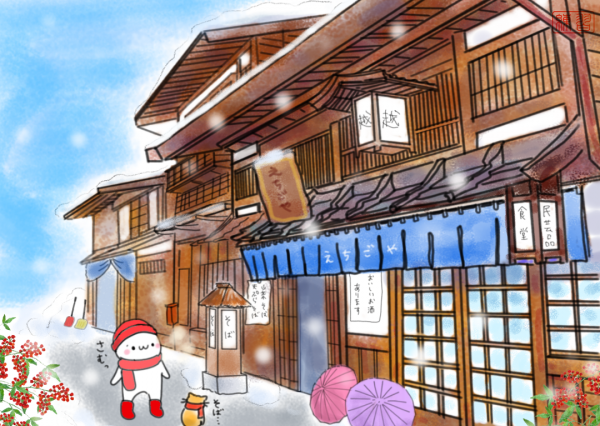A has already occurred/been done; A has already started (with ている)
- A has already occurred/been done; A has already started (with ている)
- Not A (anymore) Shows a state A that was true before, but isn't anymore (There *was* money, it *was* hot today, etc.)
- (one, a little, etc.) more A Used when asking for an additional unit/amount of something, or when showing that some amount is not enough.

雪はもう降って居ますね。
It's already snowing.
14
もう5時を過ぎましたよ。
It's already past five o'clock.
0
11
お茶がもう無くなって仕舞いました。
The tea is already gone.
0
6
もう御店の予約は為て有ります。
I've already made reservations with the store.
0
11
チケットはもう売り切れました。
The tickets were already sold out.
0
5
彼の雑誌はもう読みましたか。
Have you already read that magazine?
0
9
いいえ、もうお昼を食べに出かけました。
No. He has gone out for lunch already.
0
4
所で、もう宿題は終わった?
By the way, is your homework finished already?
0
3
もう瓦斯は消した。
I've already turned off the gas.
0
3
もう珈琲は頂きました。
I've had coffee already.
0
12
もうパスポートを申請為ましたか。
Have you applied for a passport yet?
0
10
もう決断に至りましたか。
Have you arrived at a decision yet?
0
12
もう宿題を済ませたの。
Have you finished your homework already?
2
8
もう風邪は治りましたか。
Have you got over your cold yet?
0
16
もう夜中の1時を過ぎた。
It's already past 1 o'clock in the middle of the night.
0
16
会議はもう終了致しました。
The conference is already over, sir.
0
15
靴下はもう乾いたのですか。
Are my socks dry already?
0
12
今月の御小遣いもう全部使っちゃった。
I've already spent all my pocket money for this month.
0
5
今日の日記をもう書きましたか。
Have you written in your diary yet today?
0
8
私はもう宿題を済ませた。
I have already done my homework.
0
10
鐘はもう鳴ったのか。
Has the bell rung yet?
0
0
電話が鳴った時、私はもう寝て居た。
I had already gone to bed when the telephone rang.
0
Getting the sentences
Construction
(Elements in parentheses are optional.)
Basic Examples:
もう終わった (already finished)
Basic Examples:
もう帰る時間になって居る (It's already time to go home)
Where this grammar is found
Grammar usage notes
Nothing posted yet!
Questions/Discussion
Nothing posted yet!
Not A (anymore)
Shows a state A that was true before, but isn't anymore (There *was* money, it *was* hot today, etc.)
- A has already occurred/been done; A has already started (with ている)
- Not A (anymore) Shows a state A that was true before, but isn't anymore (There *was* money, it *was* hot today, etc.)
- (one, a little, etc.) more A Used when asking for an additional unit/amount of something, or when showing that some amount is not enough.
17
セールはもう遣ってなかったよ。
They were no longer doing the sale.
0
19
お腹いっぱいだ。もう食べられないよ。
I'm full. I can't eat any more.
0
9
彼の御店はもう営業為て居ないよ。
That store is no longer open.
0
8
もう今日はバスが無いですよ。
There's no more buses today.
0
10
此の古い上着はもう着られない。
I can't wear this old coat anymore.
0
19
此の上着はもう私の体に合わない。
This coat does not fit me any more.
0
15
其の法律はもう実施為れて居ない。
The law is not in effect any longer.
0
7
そんな馬鹿げた迷信はもう存在為ない。
Such a ridiculous superstition no longer exists.
0
8
其の音にもう此れ以上我慢出来ない。
I can't put up with that noise any longer.
0
13
もう此れ以上要りません。
I don't want any more.
4
4
私はもう彼を信用為ない。
I do not trust him any longer.
0
10
落第為たくなかったら、もう赤点は取らない様に。
If you don't want to fail the class, try not to get any more failing grades.
0
0
此のテレビはもう映らないから買い換える必要が有る。
This TV doesn't play (shows) anymore, so I need to buy a replacement.
0
8
コタツはもう必要無いね。
The kotatsu (heated table) is no longer needed.
0
10
もうピアノは弾けない。
I can no longer play the piano.
0
16
お母さんはもう待てません。
Mom cannot wait anymore.
0
18
もう歩けませんよ。
I can't walk anymore.
0
Getting the sentences
Construction
(Elements in parentheses are optional.)
Basic Examples:
もう暑くない (not hot anymore)
Where this grammar is found
(one, a little, etc.) more A
Used when asking for an additional unit/amount of something, or when showing that some amount is not enough.
- A has already occurred/been done; A has already started (with ている)
- Not A (anymore) Shows a state A that was true before, but isn't anymore (There *was* money, it *was* hot today, etc.)
- (one, a little, etc.) more A Used when asking for an additional unit/amount of something, or when showing that some amount is not enough.
3
もう一杯ワインを飲みたい。
I'd like one more glass of wine.
0
4
もう少しここでお待ち下さい。
Please wait here a little while longer.
0
2
其の市街地図をもう一度良く見て下さい。
Take another good look at the city map.
0
9
もう一息努力為れば成功為るだろう。
Make one more effort, and you will succeed.
0
5
もう一日か2日我慢為て下さい。
Have patience for another day or two.
0
2
もう一杯珈琲を飲んでもいいかな。
Would you mind my drinking another cup of coffee?
0
0
私は大事を取ってもう一日寝て居た。
I stayed in bed one more day just be on the safe side.
0
7
宿泊をもう一晩延長出来ますか。
Can I extend my stay one more night?
0
10
彼にもう一杯如何かと問う。
Ask if he wants another drink.
0
0
田村の動向には良く注意して見張っておいて呉れ。其れともう一人、河村の動きも気になる。
Please be careful and keep an eye on Tamura's movements. Oh, and one more person: Kawamura's movements are on my mind.
0
1
もう一本ワインを頼んだ。
I asked for another bottle of wine.
1
Getting the sentences
Construction
(Elements in parentheses are optional.)
Basic Examples:
もう一回 (one more time)
Basic Examples:
もう少し御飯 (more rice)
Basic Examples:
もう少し待つ (wait a little more)
Where this grammar is found
Grammar usage notes
Nothing posted yet!
Questions/Discussion
Nothing posted yet!